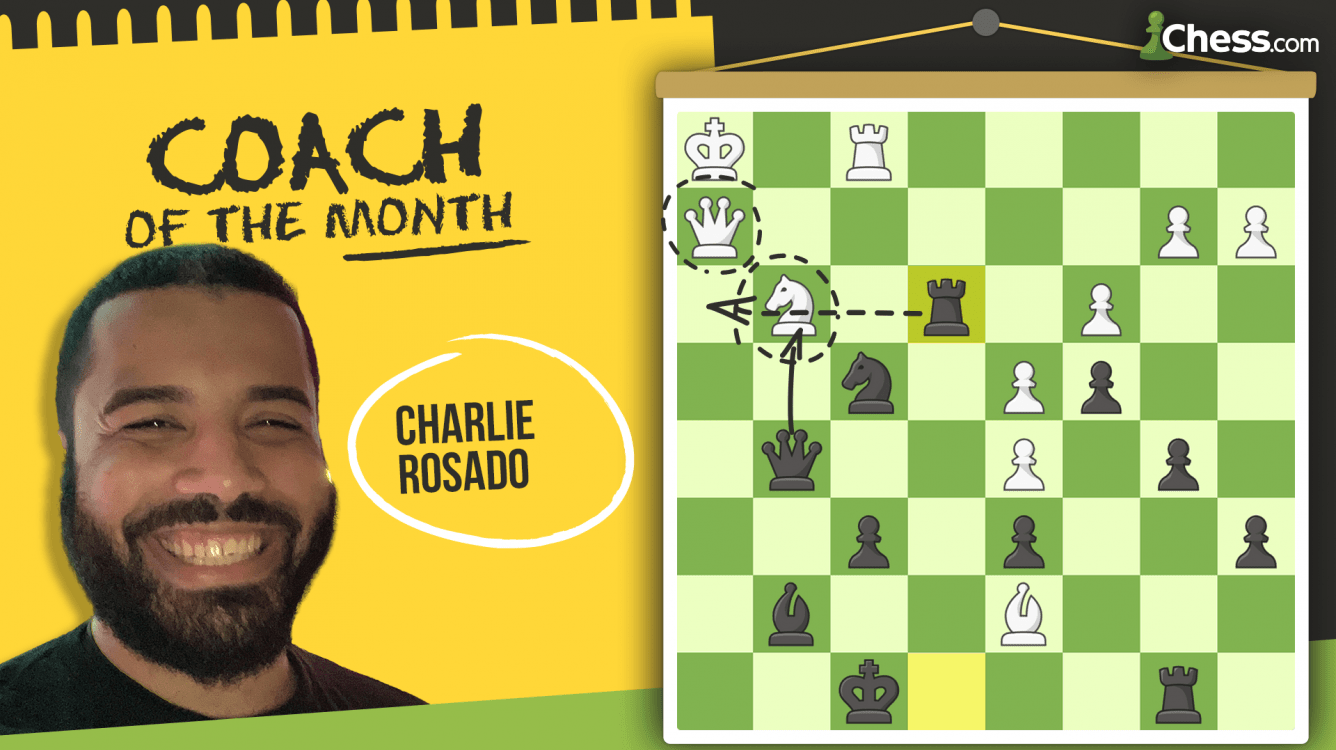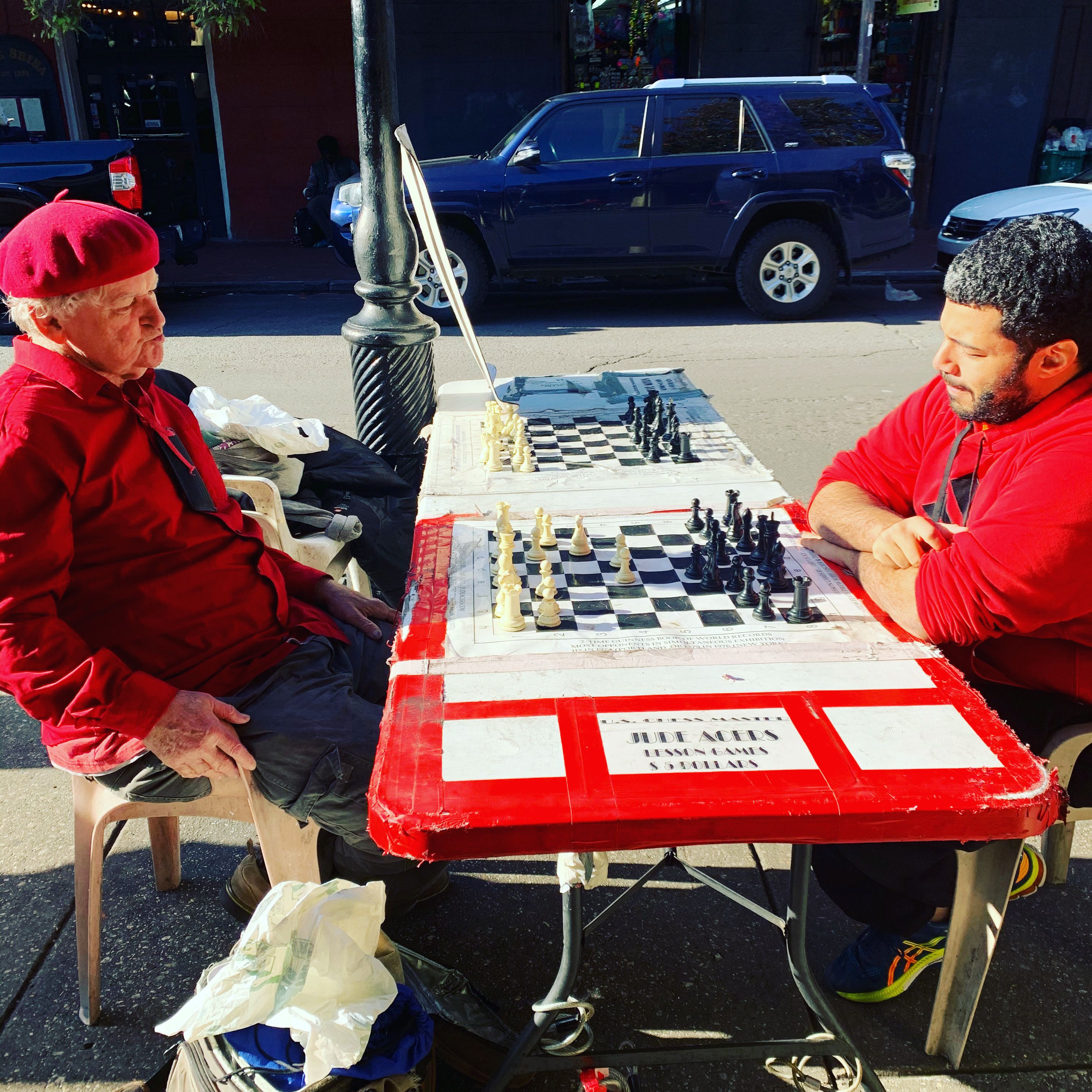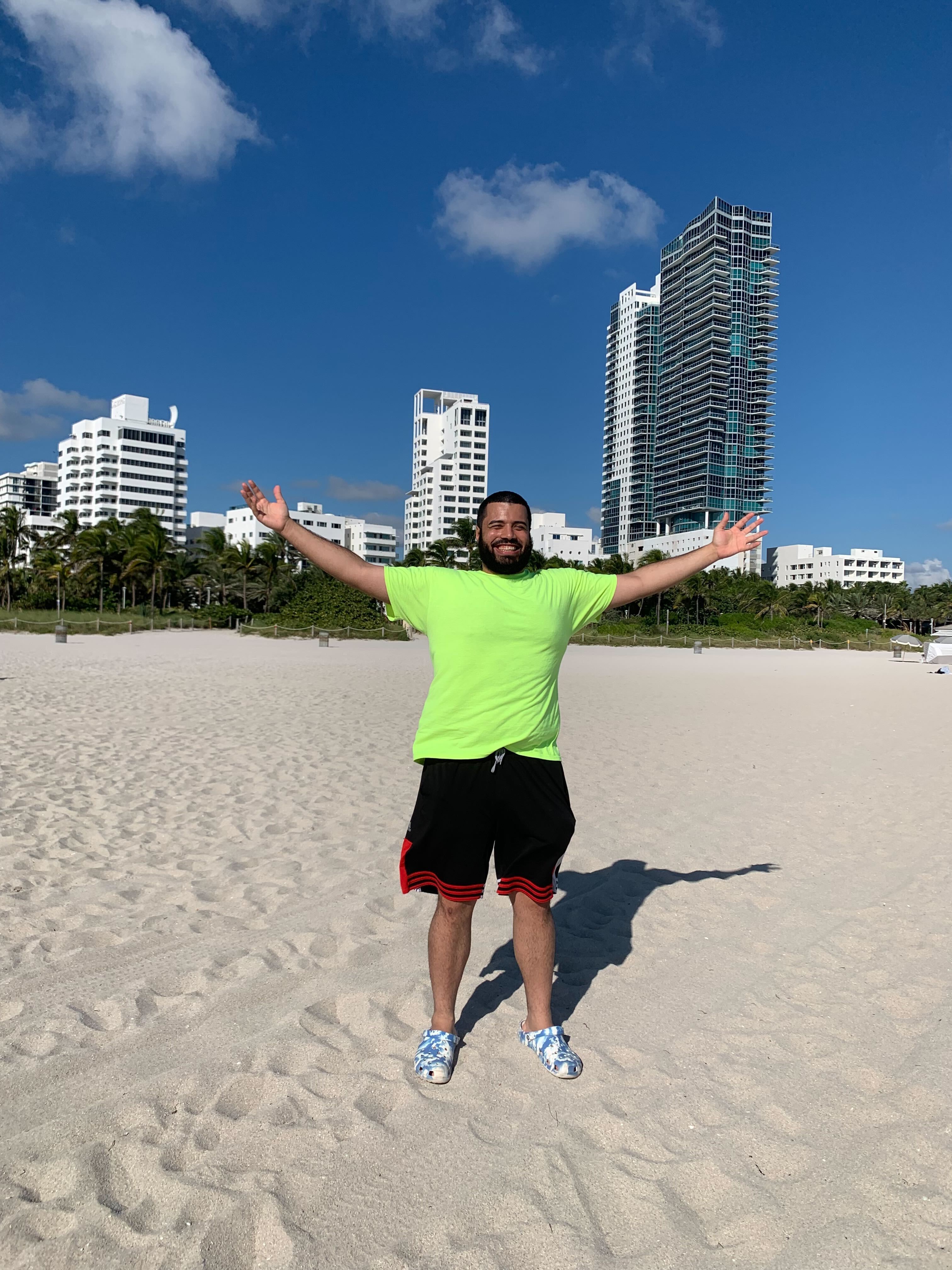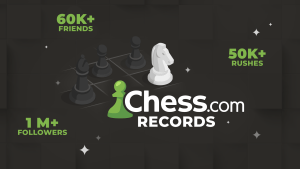
Coach Of The Month: Charlie Rosado
Chess.com's January Coach of the Month is Charlie Rosado, better known online as JapaneseTutor! Charlie is a well-known chess streamer, and one of the key characters of the Tournament Arc series.
What some people might not know is that JapaneseTutor is a formidable coach who is accepting new students. A dedicated trainer with nothing but glowing reviews from his students, Charlie is ready to help you achieve your chess goals faster!
Readers seeking private instruction can contact Charlie Rosado via his Chess.com profile and can find other skilled coaches at Chess.com/coaches.
At what age were you introduced to chess, and who introduced you?
When I was around 16 years old, in High School, people used to play chess during lunch in the cafeteria. I was not very interested at first, but as time went by, the game drew my attention. I learned by watching and later playing. One of the coaches of the chess club asked me If I wanted to join and by then it seemed like a no-brainer. Interestingly enough his name was Mr. Rosado, and although we share the same last name (and same birthday) we are not related.
What is your first vivid memory from chess?
Our coach would not let us compete in any tournaments until we completed a certain amount of challenges (tactics and puzzles). After two or three months in the club, I was finally able to participate in my first competition. I lost my first three matches of four. I remember getting destroyed by a kid who could have not been older than six or seven. He beat me while munching on his animal crackers and sipping on Capri-sun.
Despite that, I did win my fourth match and that episode is not only a vivid memory, but I think it was also a turning point since it was then that I first remember thinking that I could actually do it. I could, in fact, play and maybe even be really good at it.

Which coaches were helpful to you in your chess career, and what was the most useful knowledge they imparted to you?
My first coach, although not the strongest, was important to me because he introduced me to many different tactics. He was also a driving energy, encouraging us to always do better. I also started using CT Art (an old chess tactics software) thanks to him and I am pretty sure that my chess journey would have been different without him.
Four years ago, I learned that GM Leonid Yudasin (ex-world champion candidate) was available for coaching on the Marshall Chess Club website. I worked with him for about six months. Playing with such a strong player changed my tactics and my approach to the game in general, and he really helped me to develop a better strategic understanding of the game. He definitely made me a better and more competitive player. One thing that he mentioned that I remember clearly even to this day, is that it doesn't matter what pieces come off the board. What matters is what pieces stay and what they're doing.
Which game do you consider your "Magnus Opus?"
I really like this game I played against GM Roeland Pruijssers. Even though I made a few mistakes and I felt like I had a worse position, I kept fighting on and found some counterplay through tenacious play.
This was the first time that I actually felt confident that I could come back from a worse position—and I did. Ever since that game, I always remind myself to keep playing and trying to find the best moves, even when I'm in a worse position.
How would you describe your approach to chess coaching?
Every potential student has different goals they want to achieve. It's important that I clearly understand them. Then I look at a couple hundred of their games, trying to zero in on all their strengths and weaknesses, and, more importantly, on how they think about chess and their approach to the game.
With that data, I can better cater to my student and create a plan that ultimately enhances their strengths while fixing their weaknesses. I feel all of this is better and more easily achieved if the student is having fun during the process, so I try to also create an environment that is structured but relaxed; maybe not fully conventional, but effective and fun.

What do you consider your responsibility as a coach and which responsibilities fall on your student?
I, as the coach, need to know my students and the way they play, even better than they know themselves. I create comprehensive lesson plans, and schedule steps ahead of time to maintain a good, productive rhythm.
I expect my students to do their homework, be consistent with puzzles, and make sure they are not rushing through games, but instead learning from them and analyzing them.
Our shared responsibility is communication. Communication is instrumental to predicting or fixing anything that might affect their learning.
What is a piece of advice that you give your students that you think more chess players could benefit from?
Mindset is the most important thing you have.
I often tell my students that it doesn't matter what their opponent's rating is, how famous they are, how well they did during the tournament. You both are sitting at the same table; you both see the same board; you both have the same pieces. If they make a mistake it is up to their opponent to punish them—they do not need to punish themselves. Just play the game.

What is your favorite teaching game that users might not have seen?
Kasparov's Immortal game is definitely my favorite teaching game. It really highlights how to think properly and demonstrates how to make your pieces work together. It also shows the importance of finding what is actually wrong with your opponent's position and the importance of deep calculation.
What is the puzzle you give students that tells you the most about how they think?
I don't really have one single puzzle that I use to gauge a students' abilities but I ask them what their approach is to chess and ask about their moves in their most recent games. I can usually tell how a student thinks by going over their games. I usually find that to be more fruitful.
However, I do like to show a few students one particular position and ask them how they would proceed.

The solution is actually very straightforward but a lot of people look for moves with their pieces instead of looking for an attack with the "least obvious" piece. The idea is 1.g4 followed by g5, opening up the kingside. Chess is a game of perfect information and we can see that White has an attack. But how do we get in? This "puzzle" really reveals how fast they give up on positions or how tenacious they are in trying to find a way in.
Do you prefer to teach online or offline? What do you think is different about teaching online?
I was an offline teacher until the pandemic hit. I then switched to online teaching. One thing I miss from offline, in-person teaching, is the body language; the surprised expression when the student understands something for the first time, or their first "a-ha" moment.
Teaching online has the huge advantage of having all the information that I need at my fingertips. For the longest time I preferred teaching offline, but I believe that I really started thriving as an online teacher. There's a certain set of skills that you need for online teaching. Understanding the students' needs while teaching online classes, where I wasn't able to see them or directly communicate with them, was a huge stepping stone for me as an instructor. However, I do feel like I can truly understand my students' needs now and I really enjoy the benefits of online lessons.
What do you consider the most valuable training tool that the internet provides?
Honestly, I think Chess.com's analysis board and databases of games/openings/lessons are amazing. I utilize them for every single one of my lessons. It's nice to have all that information at your fingertips.

Which under-appreciated chess book should every chess player read?
For anyone struggling with openings I recommend Christof Sielecki's Keep it Simple series for 1.e4 or 1.d4. I think that anyone in the 1000-1900 range could really benefit from these books. It's a super solid material that will get you out of the opening in a good position so you can just play chess.
For students who are already doing fine with the opening, I recommend Daniel Gormally’s Mating the Castled King.
Prior Coaches of the Month:




